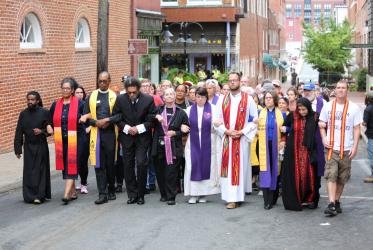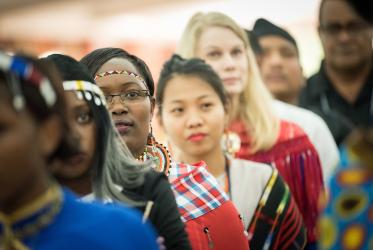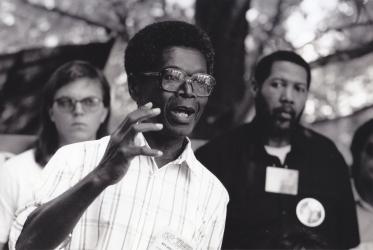The caste system is among the world's oldest forms of social stratification. Though it continues to exist in many different cultures and regions, it remains especially salient in South Asia. The system divides people into rigid hierarchical groups based on their karma (work) and dharma (the Sanskrit word for religion, but here it means duty).
In opening remarks, Rev. Dr Philip Vinod Peacock, executive secretary for Justice and Witness, World Communion of Reformed Churches, said he was happy to see the presence of communities of the faithful who have been struggling for this issue of justice. “I look through the list of participants and see so many friends here who I know who have been committed in solidarity in the struggle,” he said.
He then commented on how COVID-19 exacerbated existing discrimination under which Dalits were already living. “We know that Dalits were not allowed into other’s houses or into other places, and now we find that social distancing—really, physical distancing—has only justified these already-existing inequalities,” he said, adding that this discrimination is coupled with people’s unwillingness or inability to change it.
“We recognize that the Dalit question is not just a question for Dalits,” Peacock insisted.
Paul Divakar, executive director and founder of The Inclusivity Project, Asia Dalit Rights Forum, echoed Peacock’s reflections on mixed forms of discrimination against Dalits.
Whether it’s disaster or disease or a pandemic, he said, “you have seen communities of Dalits treated as vectors and in various positions of discrimination.”
Ironically, during COVID-19, it became, in part, the Dalits’ responsibility to keep other people alive, Divakar added, because Dalits cleaned the streets and other places people frequented.
“They are catered to by the Dalit caste,” he said. “These were already traditional occupations Dalits have been forced into, so they bear the brunt.”
It’s even more pronounced for Dalit women—to the point where discrimination grows into violence and atrocities, showed Manjula Pradeep, campaigns director at DHRDNet and National Convenor of NCWL. “We decided to document all cases of atrocities over the long-term,” she explained, raising awareness through social media campaigns and other efforts. “I think that was important because we highlighted the type of abuse that was happening during the COVID lockdown,” she said.








